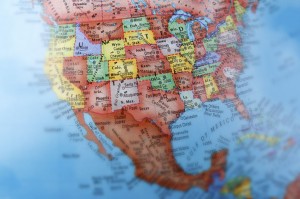States Begin to Lead on Multiple Recovery Options

The State of New York is taking a second swing at passing a bill that would help make multiple pathways to recovery, including secular pathways, a more ubiquitous reality. Last year, legislation that would ensure those mandated to attend recovery programs were notified of an option that speaks to their values and beliefs successfully passed the House and Senate, but was unfortunately vetoed by the Governor. Now, advocates are hoping to pass the bill in New York once again.
The bill is simple. If passed, a judge would be required to ensure that a defendant who has been ordered by law to attend a substance use disorder recovery program does not have an objection to a religious element of the program. If the defendant does indeed have an objection, the court would be required to identify a satisfying alternative program.
As has been testified in state committee hearings on this issue, such alternative programs are widely available; therefore, identifying an alternative program would not bring any additional burden upon a court. Such legislation does not prevent anyone from voluntarily attending 12-Step programs or other substance use recovery programs, and furthermore, requiring that judges inform defendants of their right to use multiple pathways to recovery only helps strengthen efforts to reduce substance abuse and recidivism.
Sarah Levin is the founder of Secular Strategies, a consulting firm that is pioneering the mobilization of secularist voters and empowering policymakers, lawmakers, and change-makers to be effective champions of secularism in the United States. On behalf of the Center for Freethought Equality and SMART Recovery, she has been working hard to advocate for the passage of this bill in New York. “When defendants stand before a judge and court authorities, they are not in a position of power. How can we expect defendants, if they even know they have a right to a nonreligious recovery option in the first place, to advocate for themselves before the authorities who can take their freedoms away? The burden should be on the courts, not defendants, to ensure their First Amendment rights are protected.”
Thanks to a local secular constituent and a championing Michigan State House member, New York is no longer alone in this effort—a bill ensuring multiple pathways to recovery in Michigan is similarly making its way through its state legislative process. The bill will provide that no one is left behind when accessing affirming recovery care due to their beliefs.
Eric Carlson, a member of multiple secular organizations, including the American Humanist Association, says that by speaking to his Representative on the issues that mattered most to him, he was able to successfully help with the introduction of Michigan’s bill.
“There appears to be broad support for our Michigan bill, especially from people in the profession of helping others recover from substance use disorders”, Carlson said. “Nearly all of them advocate strongly for a ‘multiple pathways’ approach to recovery. Unfortunately, too many people have been led to believe, without evidence, that traditional 12-Step programs are the gold standard in recovery from substance use disorders. This includes some Michigan judges who find it easier to automatically refer defendants to the nearest 12-step program rather than ask defendants if they have a religious objection to those programs and would prefer another community-based peer support program instead.”
The States of Michigan and New York have the opportunity to pass landmark bills that will provide for multiple pathways and options to recovery. This critical move recognizes as a matter of law the widespread importance of this issue to constituents recovering from substance abuse disorders: as proven, the leadership of these states will not only help implement inclusive substance abuse treatment options that work for everyone, but will also inspire other states to recognize and pick up this issue as well.
The American Humanist Association, which represents tens of thousands of humanists, atheists, freethinkers, and other secular individuals in Michigan, New York, and across the country, is proud to express its support for these pieces of state legislation. We are working with our supporters in Michigan and New York, as well as with elected officials and advocates to ensure everyone has access to recovery options that work best for them.
